MercoPress. South Atlantic News Agency
Economy
-
Wednesday, October 20th 2010 - 01:02 UTC
Geithner vows not to devalue the dollar for export advantage
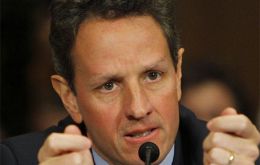
Treasury Secretary Timothy Geithner vowed that the United States would not devalue the dollar for export advantage, saying no country could weaken its currency to gain economic health.
-
Wednesday, October 20th 2010 - 00:59 UTC
China purchases 70.000 tons of Argentine soybean oil; in November 80.000 tons?

China has bought at least 70,000 tons of Argentine soybean oil after Beijing decided to unlock the imports ban that had resulted in a mounting-tension conflict. The move came after China agreed to allow all products coming from Argentina to enter its ports and was reported by Oil World magazine.
-
Wednesday, October 20th 2010 - 00:57 UTC
World Bank warns the US about consequences of dollar liquidity
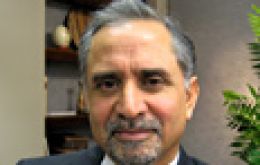
Surging capital inflows threaten Asia's economic stability, the World Bank warned after Treasury Secretary Timothy Geithner sought to draw the venom from a global row over currencies by vowing not to devalue the dollar.
-
Wednesday, October 20th 2010 - 00:52 UTC
IMF: imperative for Latinamerica to cut growth of public spending

The International Monetary Fund once again warned Latin American nations with fast growing economies of the risk of “overheating” due to strong domestic demand, which would cause “inflation and widening of current account deficits.”
-
Tuesday, October 19th 2010 - 03:56 UTC
Fears strong growth in Brazil will fuel inflation in months ahead
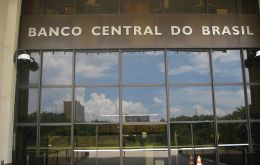
Economists in a weekly central bank survey raised for a fifth straight week their forecasts for Brazil's benchmark inflation index in 2010 and 2011, underscoring concerns that growth in the economy will raise consumer prices in the months ahead, the bank said.
-
Tuesday, October 19th 2010 - 03:28 UTC
Brazil again ups tax on incoming capital; calls for end to the “currency war”
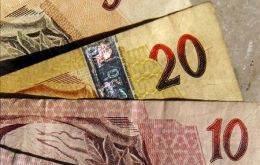
Brazil increased taxes on foreign investments in fixed-income securities for the second time in a month and Finance Minister Guido Mantega said countries trying to defend exports must end the “currency war.”
-
Monday, October 18th 2010 - 22:47 UTC
Next Chilean ambassador to China promises to boost agriculture exports

Luis Schmidt, the recently appointed Chilean ambassador to China, is already speaking out about his goals and needs as ambassador to the country that has become Chile's largest trading partner. Last month he attended the closing of the World Expo in Shanghai and in January will relocate to China
-
Monday, October 18th 2010 - 21:49 UTC
China insists that reforming the Yuan “will be a gradual process”
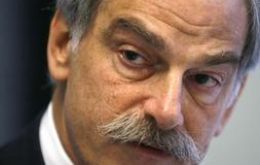
A senior IMF official tried to dampen talk of a global currency war, while China said it will stick to a gradual reform of its currency.
-
Monday, October 18th 2010 - 21:44 UTC
IMF chief warns about ‘capital flooding’ and ‘destabilization’
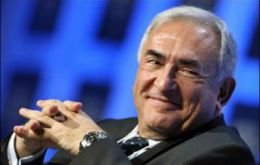
Capital flooding into Asia could lead to excessive exchange-rate moves, asset bubbles and financial instability, Domnique Strauss-Khan, the head of the International Monetary Fund, said in Shanghai Monday.
-
Monday, October 18th 2010 - 03:53 UTC
Oxfam: land grabbing and food-price volatility, main challenges to tackle hunger

UN countries began to find common ground on some important and deep-seated problems contributing to global hunger, at a meeting of the Committee on World Food Security (CFS) in Rome.
